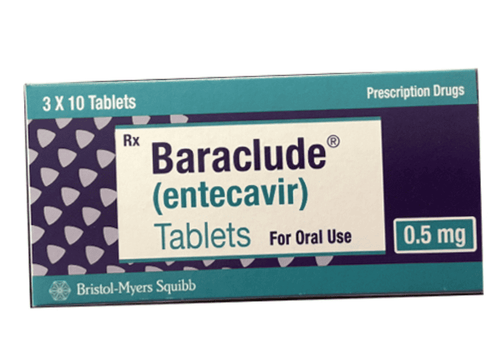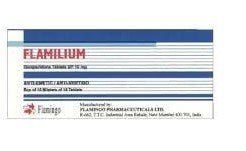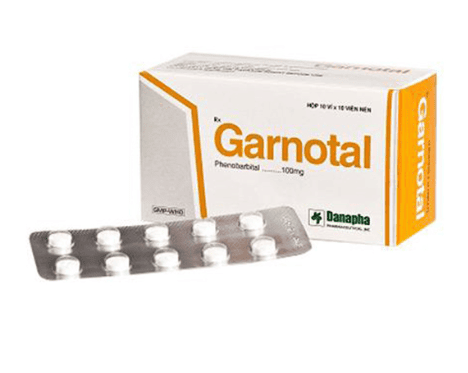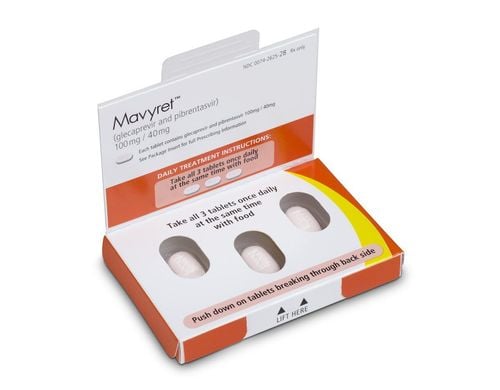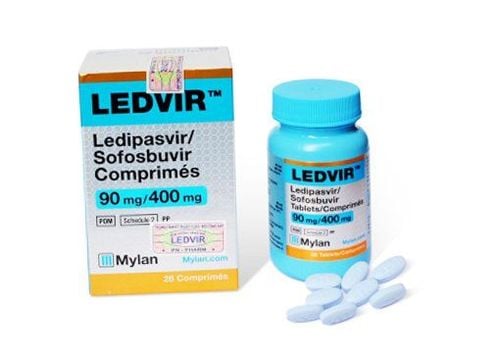This is an automatically translated article.
Entecavir Stada 0.5 mg is indicated for use in the treatment of hepatitis B virus. Besides the effective use of the drug, Entecavir Stada 0.5 mg also brings unwanted side effects.1. What is Entecavir 0.5 mg?
Entecavir Stada 0.5 mg has the main ingredient of Entecavir (in the form of Entecavir monohydrate 0.532mg) 0.5mg, belongs to the group of drugs to treat parasites, anti-infectives, antivirals, antifungals. Once tolerated, entecavir is converted to an active, biologically effective form against the hepatitis B virus (HBV for short). With the ability to inhibit the reverse transcription of the pathogenic virus, the drug prevents the replication of the virus, prevents hepatitis B, and reduces the destruction of liver tissue.
Efficacy of the drug Entecavir 0.5 mg in the treatment of chronic hepatitis B in adults with compensated liver disease. Do not use the drug in patients who are hypersensitive to Entecavir or to any of its ingredients.
2. Dosage and usage
2.1. How to use Entecavir STADA 0.5 mg is prepared in the form of film-coated tablets, the drug is used orally. For best results, patients should take the drug on an empty stomach or at least 2 hours after eating.
2.2. Dosage The recommended dosage of Entecavir for adults and adolescents over 16 years of age with chronic hepatitis B virus infection and who have not been treated with nucleosides is 0.5 mg once daily. The recommended dosage of Entecavir for adults and adolescents over 16 years of age with a history of hepatitis B virus infection in the blood while taking lamivudine or a lamivudine resistance mutation is 1 mg once daily. For patients with renal impairment, dosage is customized based on creatinine clearance. Specifically: Creatinine clearance > 50 ml/min using a dose of 0.5 mg x 1 time/day, resistance to lamivudine 1 mg x 1 time/day
Creatinine clearance from 30-50 ml/min using Using a dose of 0.25 mg once a day, lamivudine resistance is 0.5 mg x 1 time / day
Creatinine clearance from 10-30 ml / min using a dose of 0.15 mg once a day, resistance to lamivudine is 0 ,3 mg x 1 time / day
Creatinine clearance less than 10 ml/min using 0.05 mg x 1 time / day, lamivudine resistance is 0.1mg x 1 time / day
For patients with liver failure: No Dose adjustment is required in patients with hepatic impairment for whom the usual dose above is applied.
3. Entecavir . side effects
Some mild unwanted reactions when using Entecavir are dizziness, headache, fatigue and nausea. Some less common side effects include diarrhea, indigestion, drowsiness, insomnia, and vomiting.
Severe reaction is an increase in enzyme levels in the liver and more seriously there have been cases of patients with severe hepatitis when stopping treatment with Entecavir.
4. Be careful when using Entecavir
When patients use Entecavir 0.5 mg, the following points should be noted:
When using the same drugs with nucleosides or antiretroviral drugs, patients may develop lactic acidosis and severe fatty liver disease. . For patients with hepatitis B, it is necessary to regularly monitor liver function when using the drug. Because there have been many reports of patients with acute hepatitis B getting worse when anti-hepatitis B therapy has been discontinued while using Entecavir Stada. Dosage adjustment of Entecavir is recommended for patients with creatinine clearance < 50 ml/min, whether they are on hemodialysis or on continuous outpatient peritoneal dialysis (CAPD). In liver transplant patients, the safety and effectiveness of Entecavir have not been established. Doctors recommend that in these cases, patients should regularly monitor kidney function before and during treatment with Entecavir. Currently, there is no clinical evidence to confirm that the drug is absolutely safe for pregnant women, so when patients use Entecavir during pregnancy, it is necessary to consult with a treating doctor and weigh the benefits and side effects. other than that of the drug. There are no data studies on the effect of Entecavir on mother-to-child transmission of HBV. Therefore, clinicians should use appropriate measures to prevent HBV infection in neonates. It has not been demonstrated whether the drug is excreted in human milk. Therefore, it is recommended that nursing women should not take Entecavir.
5. Drug interactions
Because Entecavir is eliminated mainly by the kidneys, the use of Entecavir with drugs that decrease renal function or with other drugs that are also eliminated mainly by the kidneys may pose a risk of increasing plasma levels. serum levels of Entecavir or of co-administered drugs.
The combination of Entecavir with lamivudine, adefovir dipivoxil or tenofovir disoproxil fumarate does not cause an interaction of concern. However, close monitoring of Entecavir is still needed when it is co-administered with these drugs.
Please dial HOTLINE for more information or register for an appointment HERE. Download MyVinmec app to make appointments faster and to manage your bookings easily.




